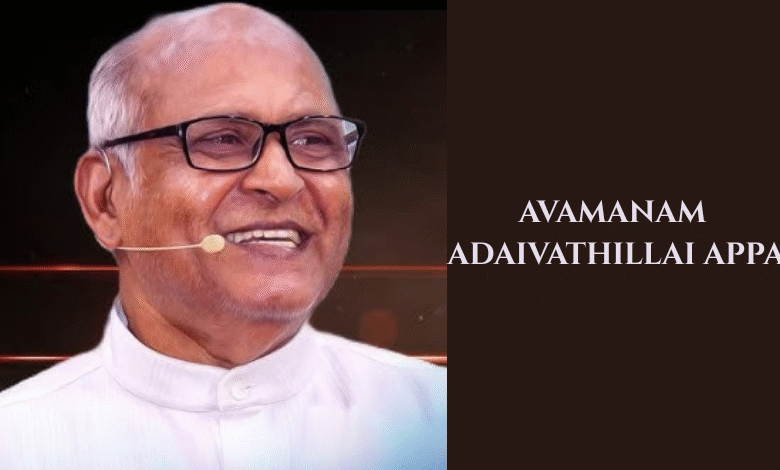Avamanam Adaivathillai Appa: A Journey Through Resilience

Ever heard someone say, “Avamanam adaivathillai appa” with a heart full of pain and pride? It’s not just a phrase it’s a powerful expression that carries generations of emotion, values, and strength rooted in Tamil culture. Loosely translated, it means, “I did not accept humiliation, father.” But oh, it means so much more.
Understanding the Phrase
Literal and Emotional Layers
Let’s break it down. “Avamanam” means humiliation. “Adaivathillai” means did not reach or did not accept. “Appa” that’s “father,” often used in a deeper sense, maybe even spiritually. It’s a declaration: “I was not humiliated. I stood tall.”
This isn’t just about pride it’s about dignity, self-respect, and an inner fire that refuses to be extinguished.
Historical and Cultural Echoes
This phrase resonates in many Tamil stories, dramas, and personal tales. Whether in epic tales like the Silappatikaram or everyday struggles, it reflects a person’s commitment to holding their head high, no matter the storm.
Dignity and Self-Respect in Tamil Culture
In Tamil Nadu, self-respect is everything. We see this in countless proverbs like “Thalai nimirndhu vaazhnthu kaattum” (Live with your head held high). Dignity isn’t a luxury it’s a birthright.
From Bharathiyar’s fiery verses to the silent strength of village elders, Tamil culture celebrates those who never let shame take over their spirit.
Why People Say “Avamanam Adaivathillai Appa”
This is a phrase spoken when the world pushes someone to the edge but they don’t break. It’s a verbal stand against injustice. It means someone stood firm, didn’t plead, didn’t beg. They took the blow but didn’t kneel.
It’s the language of quiet rebellion and resilience.
The Emotional Power Behind the Phrase
It’s not just words. It’s a punch to the gut, a tear in the eye. It’s what you say when you’ve walked through fire but came out not smelling of smoke.
Ever seen someone fight back tears and whisper this? That’s emotional strength wrapped in silence. It’s both heartbreaking and empowering.
Related Philosophies in Indian Literature
This phrase mirrors ancient wisdom. Thirukkural speaks volumes about patience, pride, and silent strength. The Bhagavad Gita teaches us that one’s honor and duty (dharma) must not be sacrificed for momentary ease.
Modern Tamil films have picked this up too where the hero doesn’t retaliate with violence but refuses to bow.
Lessons in Strength and Grace
You don’t need fists to fight humiliation. That’s the hidden message. Sometimes, dignity is your strongest weapon. Grace under fire? That’s real power.
Next time life tries to push you down, remember avamanam adaivathillai appa and rise.
Avamanam in Modern Society
In the age of Instagram and trolls, humiliation travels fast. Cyberbullying, public call-outs, and cancel culture are today’s emotional battlegrounds.
But this phrase reminds us: Don’t give your dignity away. Stand up, don’t lash out.
Psychological Perspective
Humiliation can hurt more than physical pain. The brain processes it similarly to trauma. But when someone says avamanam adaivathillai appa, it means they’ve mentally drawn a line. They’ve processed the hurt, but didn’t internalize it as shame.
That’s emotional maturity.
Gender and Social Class Dimensions
Let’s not ignore it—humiliation hits differently based on gender and class. Women, the poor, the marginalized they face more emotional attacks.
But there are countless women and oppressed individuals who rise, saying, “I was not humiliated I overcame.”
Spiritual and Religious Interpretations
Sometimes, “Appa” isn’t just a father. It’s a cry to God. Like saying, “I’ve done my part, God. I didn’t stoop. You saw it.”
It’s like surrendering ego without surrendering dignity. Very powerful in spiritual practice.
Famous Instances of the Phrase in Media
You’ve probably seen this line delivered in intense scenes on Tamil TV or cinema. Remember that one scene where the character walks away after being slapped but doesn’t break down?
That’s avamanam adaivathillai appa energy. Audiences don’t just watch it they feel it.
Teaching the Value to the Next Generation
Kids today are growing up in a world of likes and comments. Teaching them the value behind this phrase is vital.
Let them know it’s okay to walk away. It’s okay to be misunderstood. Just don’t give up your self-worth.
How to Respond to Humiliation with Grace
-
Pause and breathe.
-
Don’t react instantly.
-
Use silence as strength.
-
Seek support, not revenge.
-
Remind yourself: you’re bigger than this.
These steps help you live the phrase, not just say it.
The Power of Words in Tamil Culture
Tamil is a poetic language. A single phrase can carry volumes of meaning.
Avamanam adaivathillai appa is proof. It doesn’t yell. It doesn’t scream. But it hits hard.
Conclusion
At its core, “Avamanam Adaivathillai Appa” is more than a phrase. It’s a promise to yourself, to your community, and maybe even to the divine that you held on to your pride when the world tried to take it away. It’s a badge of honor earned through silence, pain, and a refusal to surrender.
In a world that tries to break you, be the one who stands up and says, “I didn’t bow. I didn’t break. I didn’t let humiliation win.”
FAQs
1. What is the meaning of “Avamanam Adaivathillai Appa”?
It means “I did not accept humiliation, father,” expressing strength and refusal to feel ashamed despite being hurt.
2. Is this a common Tamil expression?
Yes, it’s widely used in emotional or dramatic contexts, especially in movies, spiritual songs, and real-life struggles.
3. Is the phrase used only in religious settings?
Not necessarily. While “Appa” can refer to God, it’s also used emotionally in human interactions.
4. How can someone overcome humiliation in real life?
By practicing emotional intelligence, finding support systems, and refusing to internalize shame.
5. What are other powerful phrases in Tamil culture about dignity?
“Thalai nimirndhu vaazhnthu kaattum” and “Sirantha manithan than nilai thaan kattuvaan” are just a few that celebrate self-respect and strength.



